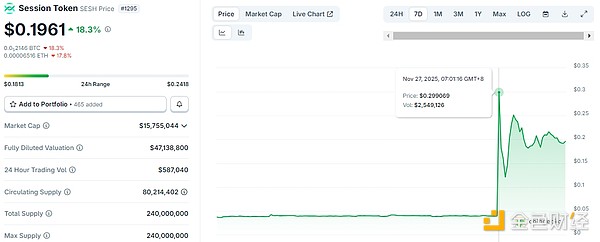North Carolina passes anti-CBDC bill, overrides governor's veto
Quick Take The North Carolina Senate passed a bill on Monday that bans state participation in CBDC testing sponsored by the Federal Reserve.
The North Carolina General Assembly has passed a bill that prohibits the state’s participation in Federal Reserve branch testing of a central bank digital currency .
On Monday, the Senate voted 27-17 in favor of the House Bill 690 to override Democrat Gov. Roy Cooper’s veto . The bill bans payments to the state using a CBDC and prohibits state participation in CBDC testing.
Cooper said in a July statement on his veto that the House Bill 690 was “premature, vague, and reactionary.” He said at the time that “efforts are being made at the federal level to ensure standards and safeguards are in place to protect consumers, investors and businesses that may want to make monetary transactions in digital assets and North Carolina should wait to see how they work before taking action."
Dan Spuller, head of industry affairs of Blockchain Association, wrote on X on Monday that the bill “should have never been vetoed,” and that Cooper “blew an opportunity to send a strong message to the Federal Reserve that [North Carolina] stands united against CBDCs.”
The North Carolina’s anti-CBDC bill comes after the U.S. House in May passed the CBDC Anti-Surveillance State Act , a Republican-led bill blocking a CBDC. The bill intends to block the Fed from issuing a CBDC to individuals.
The Federal Reserve has been exploring the possibility of CBDC issuance and has released a report examining its pros and cons. Fed Chair Jerome Powell has said that the Fed would not issue a CBDC without congressional approval — and that, if the central bank was to adopt a CBDC, it would be done through the banking system.
Disclaimer: The content of this article solely reflects the author's opinion and does not represent the platform in any capacity. This article is not intended to serve as a reference for making investment decisions.
You may also like
Bitcoin security reaches a historic high, but miner revenue drops to a historic low. Where will mining companies find new sources of income?
The current paradox of the Bitcoin network is particularly striking: while the protocol layer has never been more secure due to high hash power, the underlying mining industry is facing pressure from capital liquidation and consolidation.

What are the privacy messaging apps Session and SimpleX donated by Vitalik?
Why did Vitalik take action? From content encryption to metadata privacy.

The covert war escalates: Hyperliquid faces a "kamikaze" attack, but the real battle may have just begun
The attacker incurred a loss of 3 million in a "suicidal" attack, but may have achieved breakeven through external hedging. This appears more like a low-cost "stress test" targeting the protocol's defensive capabilities.


